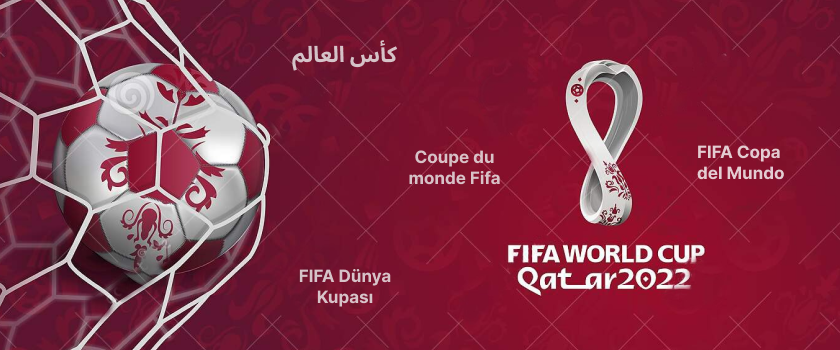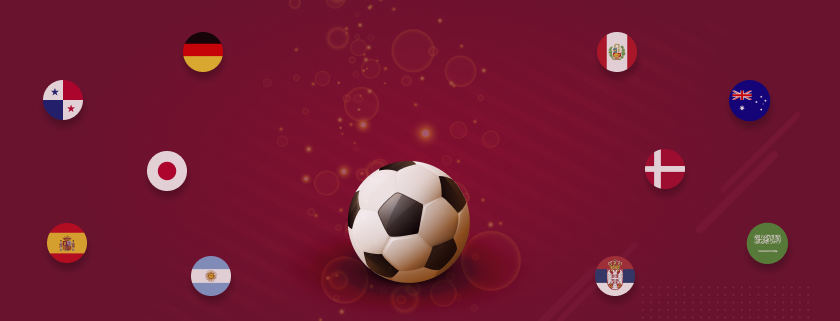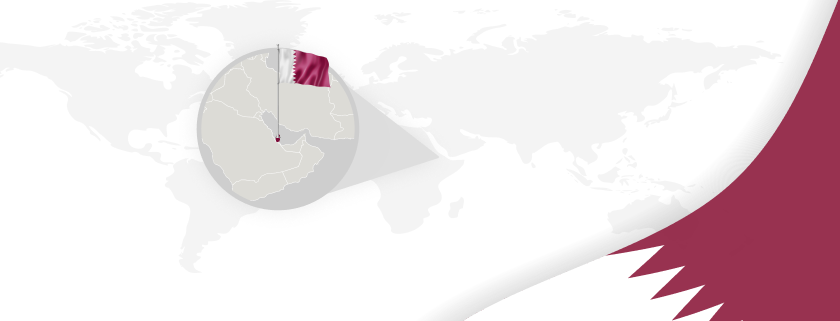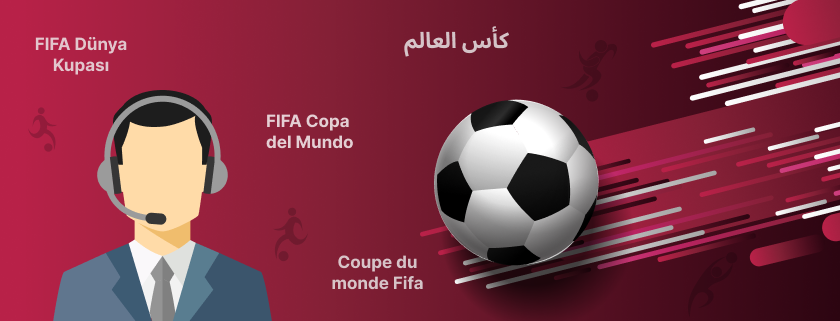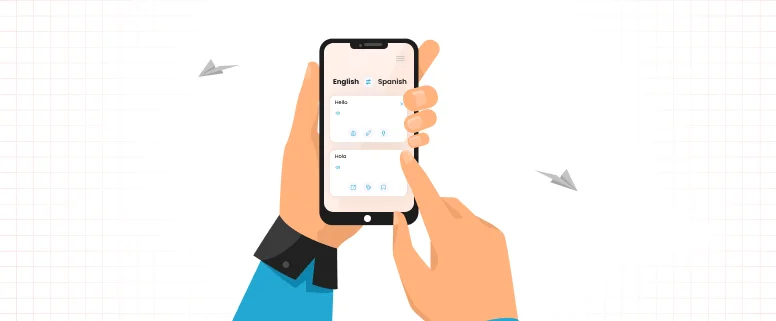The FIFA World Cup is an international association football competition. It is held between the senior men’s national teams. Further, this team is a member of the Fédération Internationale de Football Association (FIFA). It is the governing body of global sports. This world cup has been conducted every four years since 1930. However, because of the world war, it was not organized in 1942 and 1946.
The FIFA World Cup 2022 is organized in Qatar this year. People in the world speak thousands of languages. There is a probability that 1.5 million people will visit Qatar for the tournament. These people will be speaking different languages. Therefore, translation services are required to mitigate the communication barriers.
Table of Content
Which is the Country to Host FIFA World Cup?
In the history of the FIFA World Cup, this is the first time that any Middle Eastern country is hosting it. To host this tournament, the government of Qatar has spent millions of dollars on the eco-friendly football infrastructure of the country. Qatar wants to make history in hospitality. Captivating Fireworks flared over Doha’s sky to welcome people from around the world a day before the FIFA World Cup.
This tournament started on 20th November with a spectacular opening ceremony. The massive crowd gathered at the waterfront with beautiful fireworks. It displayed Welcome to Qatar through drones. This tournament will end in mid of December. It spans over 28 days and ends on 18th December. To your surprise, 18th December is the national day of Qatar.
For the first time in the history of FIFA, the event started with the recitation of the Holy Quran and the Amir of the Qatar State along with the president of the FIFA World cup, Gianni Infantino. gave the speech Morgan Freeman, a famous American Actor, surprised everyone when he joined the opening ceremony.
He asked if he was welcome. A disabled man, Ghanim Al-Muftah, answered: ”we sent out the call because everyone is welcome. This is an invitation to the whole world ”. Morgan Freeman said; instead of seeing another way we dismissed it and demanded our own way. He asked the question, ” how can so many countries, languages and cultures come together if only one way is accepted” The Ghanim Al-Muftah answered with the Quranic verse that says: ”We are raised to believe that we are scattered in this world as nations and groups so that we can learn from each other and find beauty in our differences”. Morgan replied; ”we can see it what unites us here in this moment is so much greater than what divides us.”
Here the important thing to note is that translation services can bring different countries, and cultures together and these services help people to understand the beauty in their differences. Morgan Freeman and Ghanim Al-Muftah captured the world’s attention by giving the message of diversity and acceptance.
The Most Used Languages in the World Cup
The teams participating in the world cup speak different languages. The important languages that people speak in the tournament are English, Russian, Spanish, French, German, and Arabic. All the teams participating in the tournament speak different languages. These teams don’t bring language diversity.
However, they also bring with them their cultural norms and values. To mitigate the communication barriers and to respect each other’s cultures, translation services play a significant role. In the FIFA World Cup, different cultural activities are carried out to portray the rich history and diversity of the Arab World. To understand the culture of Qatar and the Arab world, translation services can be very important no matter in which part of the country, from which you are visiting.
Qatar, The Host
Qatar is a small Arab nation that accommodates a population of 2.8 million people. The capital of this country is Doha, which is the most populous city. People from different ethnicities reside in this country. The economy of Qatar is leveraged by the exports of hydrocarbons. Qatari Riyal is the currency of this country. Qatar is showcasing its culture, history, and identity by building healthy relationships among the countries. The translation services bring these countries close to each other despite cultural and regional intricacies.
The supreme committee for delivery and legacy, SC was established in 2011. It is responsible for viewing the mega event. They have developed the stadiums and other infrastructure for the event so that the FIFA World Cup can contribute to their economy. The FIFA World Cup can bring different nations together. The love for support and the interaction of people speaking different languages can build healthy relationships among the countries. The translation services bring these countries close to each other despite cultural and regional intricacies.
The Unforgettable Hospitality of Qatar
In Islam, people don’t consume Alcohol. However, to serve non-Muslims, the government authorities of Qatar are allowing the consumption of alcohol in designated regions. According to FIFA president Gianni, alcohol is available in over 200 places where you can buy alcohol in Qatar. Moreover, it will also be available in 10 fan zones where approximately more than 100,000 people can enjoy alcohol. This decision is to provide the best hosting services to the people because people from around the world are visiting Qatar world to enjoy the FIFA World Cup.
Stadiums
The Qatar FIFA World Cup is hosted in eight stadiums. All venues for stadiums deploy cutting-edge technology like cooling systems. They reduce the temperature of the stadium by up to 20°C (36°F). The Qatar government has introduced cooling technology because of the extreme weather in the Northern Hemisphere. The bidding committee that has selected Qatar as a host of FIFA has proposed the idea of using new technologies in the stadiums as well as in fan zones, walkthroughs between the Metro stations, and training pitches.
This year, the schedule of the FIFA World Cup is changed. Therefore, it is organized this month. The important thing to note is that during the deployment of the stadiums, it is decided that after World Cup matches, the upper tiers of the stadium will be donated to football development projects. The eight stadiums in Qatar are as follows.
- Ras Abu Aboud Stadium
- Al Khor – Al Bayt Stadium
- Al Wakrah – Al Janoub Stadium
- Al Rayyan Stadium (Ahmed bin Ali Stadium)
- Lusail Stadium
- Al Rayyan Stadium
- Al Thumama Stadium – Education City Stadium
- Doha – Khalifa International Stadium
The Role of Translators in the FIFA World Cup
Caitlin Stephens who was the Dupy Head of Language Services at FIFA made a statement that translators translate around three million words per year. The FIFA World cup has four languages which are English, French, German and Spanish. Therefore, translators are required to translate these languages.
Don’t forget Russia as the previous FIFA World cup was held in Russia and Arabic this year, it is hosted by Qatar. To support FIFA World Cup in Russia and Qatar FIFA translators worked hard for media releases, information for association members, official regulations, technical reports, HR information, and legal documents concerning governance reports.
When FIFA World Cup was held in Russia then its coverage reached 1600 million people with 655.7 million watchers. It is equivalent to 18.4% of China’s population which even didn’t qualify for finals. Due to the popularity of translation, it is expected that Qatar Edition will break all the previous records in terms of translated content and number of fans.
Sports Lovers Want Seat at the Table
The way people enjoy entertainment is changing. Digitalization has taken place over traditional broadcasting. Therefore, people have their own customized prime time to watch sports at the time that suits them. People that are unable to see live matches re-watch the team’s goals in football matches and the cultures and food of the traditions of the host countries. During the sports season, translation services are in great demand. Therefore, To cover the mega event, even the journalists learn some phrases from the language of the host country. Moreover, media houses also hire bilingual journalists to mitigate communication barriers.
Do you know that 47% of the fans at the Russia 2018 World Cup were European? People from around the world have developed a great interest in soccer in general and the FIFA World Cup 2022 is a great opportunity for the world to break languages and cultural barriers. People from different cultures support different games for different reasons. Here the translators can play an important role to show the events to the entire world in multiple languages. Qatar as a host is ready to make history.
Wrapping Up
If you are looking for translation services to cover the FIFA World Cup then CCJK can assist you. Thus, It helps to mitigate communication barriers so that you can communicate in multiple languages. At present, the World Cup is happening in full swing. To make the diverse crowd understand the games, translation services play a significant role. Therefore, CCJK is using cutting-edge technology to provide the customer’s state-of-the-art game localization services. You can enjoy the enthusiasm of the FIFA World Cup by taking CCJK translation and interpretation services.
